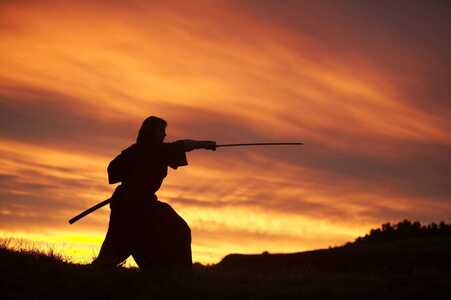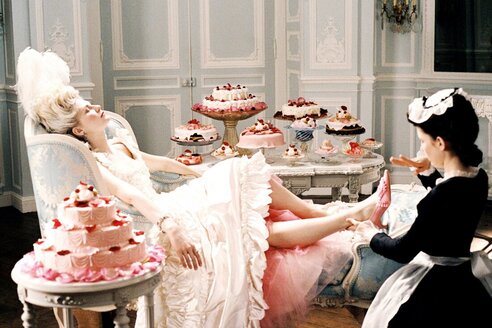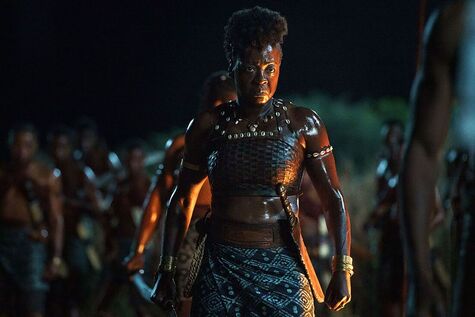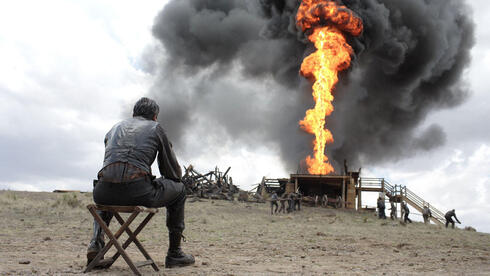|
In Jonathan Glaser’s The Zone of Interest, a father and son, depicted as earnest and industrious factory owners who take pride in their work, make a big sale to a major prospective client. The actors portraying them do an excellent job of feeling excited but downplaying it, as though the characters are too decent to be good at hiding their emotions well. This scene could be the climax of an underdog story, where the elderly father’s dream of building something that will guarantee his legacy and the success of his descendants is finally achieved. Instead, it’s one horrifying entry of many, as the company is selling incinerators to Nazi death camps, each efficiently designed to function around the clock. Glazer’s film focuses on the client, Commandant Rudolf Hess (Christian Friedel), his wife Hedwig (Sandra Huller), and their five children who live in a homestead directly abutting the walls of Auschwitz. Like the factory owners, they’re carrying out their own stories while hundreds of thousands are being snuffed out a few hundred meters away. Glazer uses all his considerable cinematic talents to observe and contextualize this family, never letting them forget how it is they’ve come to live the good life and watching as they shrug.
0 Comments
 Tom Cruise is a movie star who insists on getting things right. No matter what the audience thinks about his role as highly placed cult official, he’s undeniably a craftsman who takes immense pride in his work, even at the risk of his very expensive safety. It therefore seems inevitable that he would star in a period vehicle that elevates and valorizes a Japanese ethic of expertise and excellence, especially in the immediate years after filming Eyes Wide Shut with Stanley Kubrick, he of the endless, repetitive takes. Cruise finds the perfect historical epic that both validates his approach to work and turns him into the adaptable genius who is capable of mastering anything. In its subtextual flattery of Cruise, The Last Samurai, directed by historical epic veteran Ed Zwick, smells like a more pungent variety of white savior trope than it actually is. The film itself works as one of the best examples of white-man-meets-foreign-culture. It doesn’t totally avoid the various pitfalls, but it skillfully navigates them.
 Victor Hugo’s Les Miserables, my favorite book, doesn’t introduce its protagonist or any of its main characters for its first sixty pages. As is typical of sprawling 19th century novels, the lengthy prologue is given over to historical scene-setting through the eyes of a minor character, the bishop who will set Jean Valjean on his path to redemption. One of these early chapters is given over to the bishop’s encounter with a dying revolutionary who was present at the major events of the French Revolution some decades earlier. The bishop starts off indignant about all the crimes of the Reign of Terror, especially against Queen Marie Antoinette and her children, but the revolutionary grants him sympathy for them if he’ll extend the same sympathy to the millions who suffered under absolute monarchy. Focusing on well-known sufferers is a choice that lacks scope and imagination, memorably described by Hugo as taking in the thunderbolt and ignoring the storm clouds that made it possible. Sofia Coppola’s Marie Antoinette is all thunderbolt, a fatally flawed film whose considerable style and technical mastery cannot overshadow how perverse it is to frame Madame Deficit as any kind of victim of the patriarchy. History or feminism owes this person nothing, and no small amount of pleasure is taken from knowing that many of the people onscreen , including her, are going to get theirs. However, if a film is going to be this unnecessary, it may as well be as fun as this one is.
 Of all the reasons Black Panther became such a dominant culture force, Afro-futurism played an important part. So much of Western life for a person of African descent is a reminder that only a handful of generations ago, one’s ancestors were enslaved or, in even more recent memory, were crushed under the boot of European colonialism. Envisioning a Black empire that’s strong and vibrant lets the viewer live in the counter-factual for a couple hours, where there’s a place untouched by imperialism and bursting with pride at its own world-beating accomplishments. The Woman King doesn’t have cutting-edge technology courtesy of a unique mineral deposit, but Gina Prince-Bythewood’s historical epic does bring viewers to a period of African autonomy when small kingdoms on the Atlantic coast vied for territory and power. In one of these kingdoms, Prince-Bythewood uses an army of female warriors to tell her story of self-determination and vision. The Woman King takes the very American tradition of hagiographic cinematic history and gives it to someone else. It might not be strictly accurate, but what is? The Woman King’s greatest value comes from its locating of grand historical arcs in new places, where the story of Dahomey, like all civilizations, is pulled between its opportunities fulfilled and overlooked.
 For my money, Paul Thomas Anderson’s never made a film that deserves less than an A-. He’s made more A+ movies, at three, than any other filmmaker. That kind of consistency makes him my favorite director, and though it’s not my favorite of his films, There Will Be Blood is the thing he’ll be most remembered for. It’s won the most Oscars, made the most lists, and found a place on the Sight and Sound list only five years after its 2007 release. This is his objective masterpiece, though I prefer the raucous Boogie Nights and the mysterious Master. It’s no surprise that a film this overwhelming and epic and ostentatiously important would receive the most critical acclaim. There Will Be Blood stomps around in its frontier setting and therefore can’t help but have something grand to say, set as it is in a grand environment. In his homage to the expanses of John Ford and the chilliness of Stanley Kubrick, PTA gets the most prestige-y of pictures checked off his resume. |
AuthorsJUST SOME IDIOTS GIVING SURPRISINGLY AVERAGE MOVIE REVIEWS. Categories
All
Archives
April 2023
Click to set custom HTML
|

 RSS Feed
RSS Feed